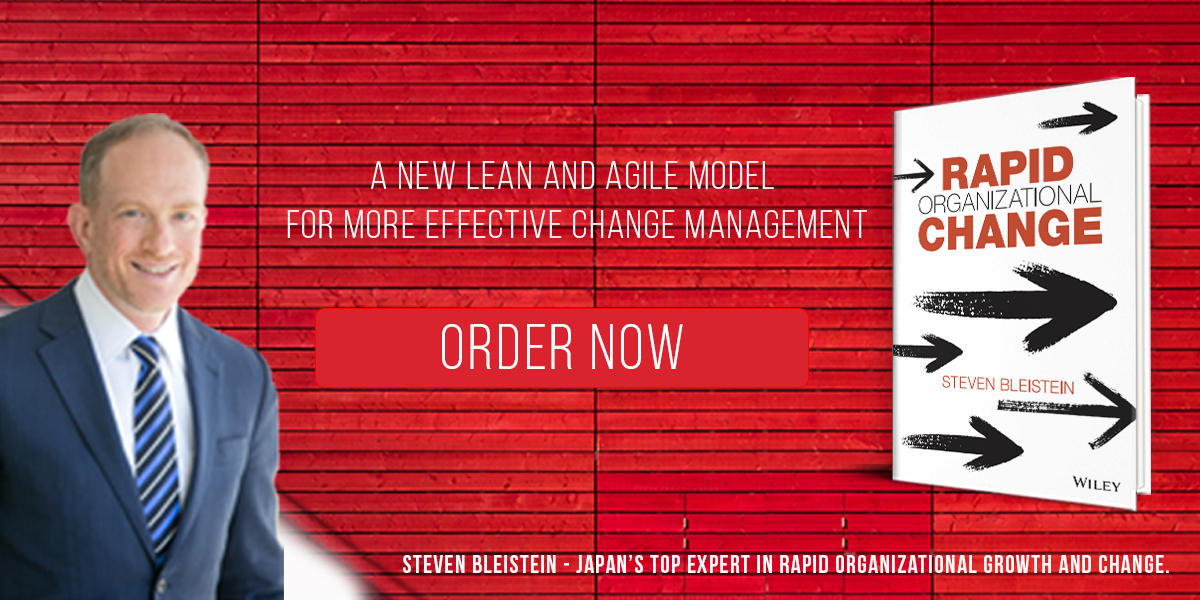[:en]I often see sales people offer highly valuable expert services from an R&D division to a customer for free in order to make a product sale, even when the customer would likely have been happy to pay.
For example, sales people at a chemical company I know had often used R&D scientists to advise customers on formulation of a highly competitive product the customer wishes to make in order to sell a commodity ingredient that the chemical company offers. The company had charged only a moderate price for the product sale. The highly valuable formulation expertise had been needlessly given away for free. Another business I know that produces an innovative non-human personal care product safety testing kit had charged a moderate price for the kit while giving away the highly valuable expert advice on how to construct the experiments for which the testing kit is used.
When R&D resources are devoted to helping make a single sale to a customer, which rarely has a long-term benefit for the business, those resources are not being used for innovating new products and technology, which do have a long-term benefit for the business and can even result in dominating an industry. Giving away expert technical and scientific advice not only results in lost revenue opportunity for the business, it squanders the return on investment of an R&D operation. Using R&D for sales promotion in the extreme is the corporate equivalent to eating your young.
The misuse of R&D is not entirely the fault of sales people. Sales people use whatever resources are available to help them make an immediate sale, even though they may be damaging their own interests in the long-term. I often hear sales people complain that there are not enough innovative products coming out of R&D. Some of the blame must also be shared by people in R&D who are complicit, and the leaders who oversee sales, R&D, and/or both and tolerate if not enable the practice.
Why is misuse of R&D so common? There are a number of causes, here are five. Share on X- Sales divisions often bear no cost for R&D services used in making a sale. There is no economic motivator for them not to use the services, which they view as free, and not to charge for it, as they are primarily rewarded for sale of products, not services.
- Innovation in an R&D division is a long process, whose results for the business may not be visible for years, if at all. Rates of failure are high. From the outside, it can appear that R&D is contributing little to the business. Providing immediate services to make a sale is a way of rapidly demonstrating worth, even though in the long-term it is folly.
- Leaders who oversee both sales and R&D in the business are constantly pulled between the need to make immediate sales in the present and preparing for the future with innovation. The immediate payoff in making a sale can often appear more attractive than an uncertain benefit from innovation sometime in the future.
- Innovation in R&D is hard. It requires discipline, patience, and comfort with failure. Supporting a sale is fast, easy, frequently successful, and provides an immediate emotional reward. Why wouldn’t someone be attracted to the latter?
- Sales are urgent, whereas innovation can be put off until tomorrow. I often hear R&D people claim that there is constant demand for their time by sales people who are in a rush, limiting time for innovation to interstitial time in their day, damaging continuity of effort.
As a leader, what can you do about misuse of R&D in your organization? Below are a few suggestions.
- Charge the sales division appropriately for the services of R&D. When something has a price, people think twice. Let the economics guide sales people in deciding whether or not the services are worth it to them, or to the customer, whom they might charge more.
- Separate R&D resources into two teams: one that responds to sales requests, and the other that is devoted entirely to innovation. That way you guarantee that innovation continues, while also servicing sales people and customers.
- Establish guidance for sales people on how to price the service component of an offer, or how to price product when the service is included.
- Make it clear that service is never free, for either you or a customer.
What are you experiencing in your organization? Want to ask me question? Contact me.
 [:ja]営業担当者が、自社研究開発部の価値の高いサービスを無償で提供することによって、商品を買ってもらおうとするケースは度々見られます。それは顧客がそのサービスの料金を喜んで支払うつもりの場合でも起こっているようです。
[:ja]営業担当者が、自社研究開発部の価値の高いサービスを無償で提供することによって、商品を買ってもらおうとするケースは度々見られます。それは顧客がそのサービスの料金を喜んで支払うつもりの場合でも起こっているようです。
例を挙げましょう。私の知っているある化学製品の会社の営業担当者は、しばしば研究開発部の科学者に頼んで、顧客が作りたいという非常に競争力のある製品の製剤方法についてその顧客にアドバイスしてもらい、その見返りに自社が販売する商品材料を買ってもらおうとしていました。この商品は大して高いものでもありませんでした。それにも関わらず大変価値のある製剤方法の専門知識は、ただで提供したのです。また、人体実験なしにパーソナルケア商品の安全性を確かめられるという画期的な検査キットを作っている某社は、キットは安めな価格で販売しているのに、そのキットを使った実験を構成する方法についての高価値な専門アドバイスは無料で行なっていました。
上に挙げた例では、研究開発部のリソースは顧客にたった一度商品を買ってもらうためだけに使われた訳で、このようなやり方がビジネスにとって長期にわたる利益をもたらすようなことは殆どありません。もし代わりに研究開発部が画期的な新製品や技術を開発することに力を注げば、それはビジネスにとって長期的利益をもたらし、場合によっては業界で優位に立つことに繋がることさえあるでしょう。専門的な技術知識や科学的なアドバイスをただで提供することは、ビジネスにとって収入機会を逃す結果となるだけでなく、研究開発部の運営に対する投資利益の無駄遣いともなるのです。研究開発部を営業プロモーションに極端に利用するのは、ビジネスにとって自分の首を絞めるようなものです。
こういった研究開発部の間違った使い方が起こってしまうのは、全てが営業担当者の責任と言う訳ではありません。営業部に課せられた仕事は、使えるものはなんでも使ってすぐに売り上げを出すこと。そのせいで長期的な目から見るとビジネスにとって不利益なことをやってしまう結果となる場合もあるのです。私は営業部の人々から、研究開発部で作られる画期的な商品の数が十分ではない、というぼやきをよく耳にします。またその責任は、その営業プロモーションに加担した研究開発担当者や、研究開発部や営業活動をまとめるリーダー達にもある筈です。彼らはこういったやり方を奨励したわけではないかもしれませんが、容認はしていた訳ですから。
なぜ研究開発部が間違った使い方をされることが多いのか。様々な理由の中でもよく見られるのはこの5つである。 Share on X- 研究開発部のサービスを使って商品を販売しても、営業部にはコストが発生しない。つまり営業部にとって、研究開発部のサービスは無料であり、それを使わない方が良いという経済的な理由がないのである。そして営業部はサービスではなく主に商品の売り上げによって評価されるため、サービスを無料にしてしまう訳だ。
- 研究開発部のイノベーションは長いプロセスが必要であるため、ビジネスにとってのその結果が見えてくるには何年もかかることもあるし、それが失敗に終わる確率も高い。なので、外から見ると、研究開発部がビジネスにあまり貢献していないように見えることもある。そんな中でサービスを提供することでセールスに貢献することは、迅速にその価値を見せることを可能とするのである。たとえそれが長期的に見ると愚かな行為であるとしても。
- 営業と研究開発の両方をまとめるリーダーたちは、常に、すぐに営業結果を出す必要と、イノベーションにより将来に備える必要との両方を考えなくてはならない。イノベーションからいつの日か入ってくるかもしれない利益に比べると、今、商品を売ることで得られる利益の方が魅力的に映ることはよくあることである。
- 研究開発のイノベーションは簡単なものではない。それには訓練、忍耐、そして失敗をも受け入れられる姿勢が必要だ。逆に営業のサポートを行うことは、迅速、簡単で、成功率が高く、気持ちの上でもすぐに満たされる行為である。後者の方が魅力的に映ってしまうのは仕方ないことであろう。
- 営業は緊急を要することだが、イノベーションは先送りがしやすいものである。研究開発部のメンバーからよく聞くことだが、営業スタッフはいつも急いで彼らに協力を要請し、結果、イノベーションに避ける時間が分断されてしまい、継続的にやろうとしていた仕事の効率が下がってしまうという。
あなたがリーダーであれば、こういった研究開発部の間違った使い方をどのようにして是正されますか。以下は私からの提案です。
- 営業部が研究開発部のサービスを使った場合、その妥当なコストを営業部にチャージすること。値札のついたものであれば、人はそう安易に使おうとはしないものである。営業部にも経済的な視点から考えた上で、研究開発部のサービスを利用することが自分たちや顧客にとって本当に価値があるものか、或いは顧客にサービスを有料で提供するべきか、などを判断してもらうように持っていくべきである。
- 研究開発部のリソースを2つのチームに分け、ひとつには営業部のリクエストに応えてもらい、もうひとつにはイノベーションのみに専念してもらうこと。こうすることで、営業部や顧客にサービスを提供しつつ、イノベーションも継続させることができる。
- 商品とサービスを販売する際の、サービス部分、もしくはサービスを含んだ商品の価格の決め方について、営業担当者を指導する。
- 自分たちにとっても、顧客にとっても、ただのサービスなどない、という考え方を徹底させる。
御社で経験されていることを私とシェアしたい方、私に質問のある方は、どうぞご連絡ください。
 [:]
[:]


